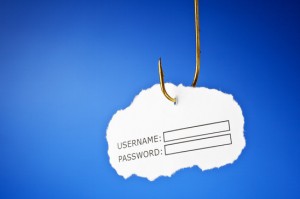This question is getting asked a lot lately, because phishing attacks continue to rise. Phishing is a complex problem that is growing worse. Phishing is based on the term ‘fishing’ and refers to scammers who ‘fish for’ private information using email spam. When they’re successful, they end up hitting pay dirt. Many scammers target companies. They hope to find a weak link employee who gives up information for an account. If that account happens to be financial in nature, the criminals have a good chance at doing real damage.
Why is phishing popular?
Phishing is gaining in popularity because it’s effective. It’s a low cost way to scam companies out of potentially big money. It only takes one big screw-up to add up to a lot of dollars in no time. If criminal groups send out massive amounts of these emails, they only need a very low conversion rate to earn a lot. That’s the type of formula that will keep them coming back for more. If no one ever opened a phishing email, people would stop sending them. But people do open them, and they do click once open. They also open attachments and infect their networks. Human nature makes people curious. One of the bad aspects of that fact is that people tend to unthinkingly click on email they trust, even when they shouldn’t! Sometimes all it takes is a catchy headline and an emotional appeal to get them to put their brain on pause and let their emotions take over. Once they do, they may reveal very sensitive information like key passphrases.
Cyber criminals understand human nature and they know to attack the Achille’s heals of their targets. Scammers know exactly what buttons to push and they love pushing them. When they push people’s buttons, money comes out the other end and lands in their pockets! They will keep on pushing until the cow comes home.
How Can You Stop Phishing Attacks?
The most comprehensive way to put an end to phishing attacks on your corporate network is to migrate your email to a cloud based email security provider who manages your email. Then, using a simple control panel, you can create robust rules that will stop phishing attempts, along with spam and viruses. The only way to stop an automated problem like email phishing is by implementing an automated solution. Otherwise, you’ll have to rely on consistent good judgment by your staff every single time an email is delivered! It’s not likely they’ll be able to sustain a 100% safety record given those conditions. An automated solution can stop 100% of the threats.
Phishing attacks are only going to get worse as time passes. Cyber criminals have a way of sticking with something that works. Phishing is still effective enough that there are scores of people sending millions of emails daily hoping to relieve someone of sensitive information. Companies that have not inoculated themselves against the problem are very susceptible to these attacks. Phishing promises to remain a huge drain on resources for the forseeable future. Taking decisive action against phishing now is a great idea.
Phishing Has Spread To Social Networks
As I said earlier, phishing works. That’s why the practice has expanded beyond the inbox and into social media. Facebook phishing attacks are now extremely common, with equally disastrous effects. Phishing attacks often ‘go viral‘ because of how the offers are worded, meaning they can spread very quickly through Facebook friend networks. Again, cyber criminals understand the types of subject lines that get clicks and action and they use them repeatedly. Phishing based on current trending events is becoming common. That way a headline referring to Amy Winehouse or Steve Jobs after their deaths can leverage the interest in that story and the emotions the person is having to get someone to ‘click away.’ Don’t be a victim of phishing.

